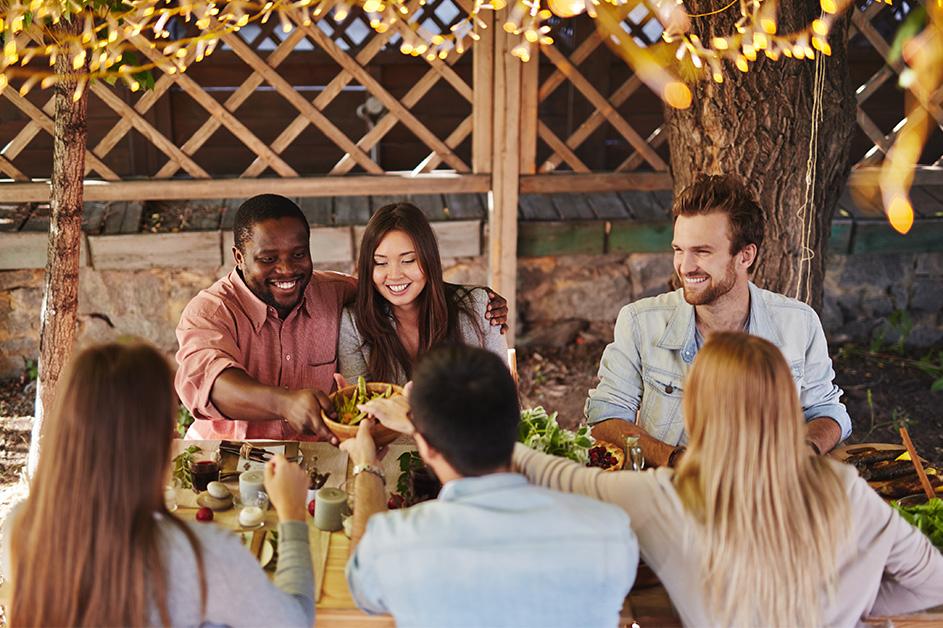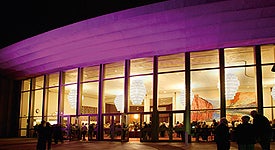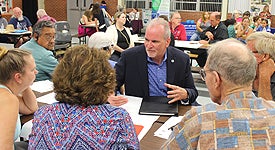
The holidays are a time of food, family and fun — but they are also a time for increased waste and water use. In fact, the Environmental Protection Agency reports that waste increases by more than 25% over the holiday season. With a few simple adjustments and more mindful consumption, we can all help reduce the environmental impact of this holiday season.
Here are 16 quick tips to help you reduce your footprint this Thanksgiving.
- Shop smart at the grocery store by avoiding plastic and paper bags; plan ahead and bring your own reusable ones. If you do have bags that you’re done reusing, you can recycle paper bags in your blue bin and plastic bags/wrap at most grocery stores.
- Do not pour your Thanksgiving grease down the drain — this can easily clog and cause costly damage to pipes. Small amounts can be frozen, covered, bagged, tied and placed in your trash. Larger amounts should be poured in a secured container and taken to the City's Household Hazardous Waste Collection Facility by appointment. Call 480-782-3510 to schedule.
- Reduce the overall amount of waste you produce this Thanksgiving by purchasing only as much as you need and by thoughtfully selecting products that have less packaging or can be reused or recycled.
- Set your holiday dinner table with cloth napkins, glassware, silverware and dinnerware instead of disposable items, which are not recyclable.
- Recycle your clean, empty food packaging such as cardboard egg cartons, stuffing mix boxes, soup cans, pie plates, milk jugs and soda bottles.
- Thaw your frozen food in the refrigerator or microwave — not under running water. Plan ahead by giving your turkey 24 hours to thaw in the fridge for every four-to-five pound of turkey.
- Designate one glass for your drinking water each day or refill a water bottle to help you cut down on the number of glasses to wash and help you save water.
- Avoid rinsing fruits and vegetables under running water. Instead, use a sink or basin filled with water to conserve.
- Avoid rinsing or pre-soaking dishes and utensils under running water; use a sink or basin filled with water as a water-friendly alternative.
- Only run your dishwasher if the load is full. Make pre-rinsing your dishes before the dishwasher unnecessary by scraping excess food from dishes prior to loading.
- If you wash dishes by hand, do not leave the water running for rinsing. Instead, fill one sink with soapy water and one with rinse water. If you have a single sink, use a basin with soapy water for washing. Then, gather the washed dishes in a dish rack and rinse with a sprayer or pan of hot water.
- Only discard small disposal-friendly items in your garbage disposal in limited quantities. Do not put all of your scraps from meal prep or dining leftovers through the garbage disposal; use the trash instead.
- If hosting guests, remind them to keep their showers down to four to five minutes and to turn off the faucet when water is not needed, such as when washing hands or brushing teeth.
- Use towels and sheets more than once before washing, and only wash full loads of laundry.
- When preparing your home for guests, use a broom to sweep sidewalks, driveways, patios and entryways instead of hosing them down.
- Pay attention and remind your guests that only toilet paper belongs in the toilet. Flushable wipes are not actually flushable, and other non-toilet friendly items include feminine products, paper towels, cotton swabs, facial tissues, etc.



